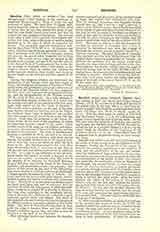

Ezechias (Heb. CHZQYHW, or YCHZQYHW= “The Lord strengtheneth”; Sept. Ezekias; in the cuneiform inscriptions Ha-za-qi-ya-hu), King of Juda, son and successor of Achaz. We learn from IV Kings, xviii, that he began his reign in the third year of Osee, King of Israel, that he was then twenty-five years of age, that his reign lasted twenty-nine years, and that his mother was Abi, daughter of Zacharias. The account of his reign is beset with unsolved chronological difficulties, and there exists a difference of opinion among scholars as to the year in which he ascended the throne. The commonly received computation reckons his reign from 726 to 697 B.C. In character and policy, Ezechias was pious and agreeable to God. He was a strenuous civil and religious reformer, and on this account the sacred writer compares him to King David. The events of his reign are related in the Fourth Book of Kings, and also in the parallel account in the Second Book of Paralipomenon, but in the latter, as might be expected, stress is laid chiefly on the religious reforms which he carried out, whereas the earlier account mentions these briefly, and dwells at greater length on the civil and political aspects of his reign.
Among the religious reforms are mentioned the purification of the Temple, which had been closed by Achaz, the irreligious predecessor of Ezechias (II Par., xxviii-xxix), the resumption and proper celebration of the feast of the Passover which had been neglected (II Par., xxx), and in general the extirpation of idolatry, and the reorganization of the Hebrew worship (IV K., xviii, II Par., xxxi). In a title prefixed to the twenty-fifth chapter of Proverbs, it is stated that the sayings contained in the following collection (xxvxxix) were copied out by the “men of Ezechias”. This would seem to indicate, on the part of the king, some literary interest and activity, and in the Talmudic tradition these “men of Ezechias” are credited with the composition of several books of the Old Testament. Soon after his accession to the throne Ezechias threw off the yoke of the Assyrians, to whom his father had become a vassal (IV K., xviii). Other notable events of his reign are his sickness and miraculous cure, the embassy of Berodach Baladan, and the invasion of Sennacherib. The story of the sickness of Ezechias is narrated in IV K., xx, and in Is., xxxviii.
The king having been stricken with some mortal disease, the prophet Isaias comes in the name of Yahweh to warn him to put his affairs in order, for he is about to die. But Ezechias prays to the Lord, Who sends the prophet back to announce to him that he will recover, and that fifteen years are to be added to his life. As a sign of the fulfillment of this promise, Isaias causes the shadow to recede a distance of ten lines on the sundial. Connected with this event is the sending of an embassy by Berodach Baladan, King of Babylon, who having heard of the illness of Ezechias, sent messengers to him with presents. The motive of this action on the part of the Babylonian king was probably to enlist the services of Ezechias in a league against Sennacherib, King of Assyria. Ezechias received the envoys with great honor, and exhibited to them his various treasures and armaments of war. This spirit of ostentation was displeasing to the Lord, and Isaias was sent to announce that the treasures, in which the king seemed to place his confidence, would be all carried off as plunder to Babylon. Not long after (according to the cuneiform inscriptions, in the year 701), Sennacherib undertook a great campaign against Syria and Egypt. The story of this expedition is told, from the Assyrian standpoint, in the official cuneiform inscription known as the Taylor prism. The plan of Sennacherib was, first, to vanquish the kings of Ascalon, Sidon and Juda who had formed a coalition against him, and then to turn his attention to the land of the Pharaohs.
After subduing Ascalon and Accaron, the Assyrian invader captured and plundered all the fortified towns of Juda, and carried their inhabitants into exile. Then he besieged Jerusalem, and Ezechias, finding himself shut up “like a bird in a cage”, resolved to come to terms with his enemy. Sennacherib demanded thirty talents of gold and three hundred talents of silver, and, in order to supply it, Ezechias was obliged to yield up not only the contents of the royal treasury, but also the silver belonging to the Temple, and the plates of gold which were on the doors thereof (IV K. xviii). But when in addition to this, the Assyrian demanded the surrender of Jerusalem with a view to carrying its inhabitants into exile, the courage of Ezechias was revived, and he prepared himself for a vigorous resistance. Haughty demands of surrender were repulsed, and the king taking counsel with the prophet Isaias turned in supplication to Yahweh; he received the assurance that the enemy would soon abandon the siege without doing any harm to the city. This prophecy was shortly verified when the angel of the Lord having slain in the night 185,000 of the besieging forces, the remainder fled with Sennacherib, and returned to Assyria. Ezechias survived this deliverance only a few years, and he was buried with great pomp in the tomb of the sons of David (IV K. xx, 21; II Par. xxxii, 33).
JAMES F. DRISCOLL

